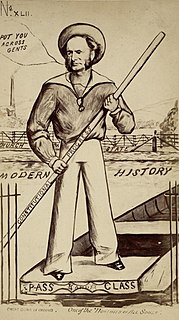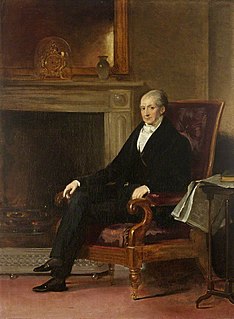This page is based on this
Wikipedia article Text is available under the
CC BY-SA 4.0 license; additional terms may apply.
Images, videos and audio are available under their respective licenses.

Earl of Ducie is a title in the Peerage of the United Kingdom. It was created in 1837 for Thomas Reynolds Moreton, 4th Baron Ducie. The family descends from Edward Moreton, who married Elizabeth, daughter of Robert Ducie. Their son Matthew Ducie Moreton represented Gloucestershire in the House of Commons. In 1720 he was raised to the Peerage of Great Britain as Baron Ducie de Moreton, in the County of Stafford. He was succeeded by his son, the second Baron. He was also a Member of Parliament and served as Lord-Lieutenant of Gloucestershire. In 1763 he was created Baron Ducie, of Tortworth in the County of Gloucester, with remainder to the sons of his sister Elizabeth Reynolds. This title was also in the Peerage of Great Britain.

Viscount Downe is a title that has been created twice in the Peerage of Ireland. The first creation came in 1675 for William Ducie. However, the title became extinct on his death in 1679. The second creation came in 1680 for John Dawnay. He had earlier represented Yorkshire and Pontefract in the English House of Commons. His son, the second Viscount, also represented these constituencies in the House of Commons. His grandson, the third Viscount, sat as a Member of Parliament for Yorkshire but died from wounds received at the Battle of Campen in 1760. He was succeeded by his younger brother, the fourth Viscount, who represented Cirencester and Malton in Parliament.

The River Irk is a river in North West England that flows through the northern suburbs and towns of Greater Manchester.

The Channel Fleet and originally known as the Channel Squadron was the Royal Navy formation of warships that defended the waters of the English Channel from 1854 to 1909 and 1914 to 1915.

The Royal Naval Academy was a facility established in 1733 in Portsmouth Dockyard to train officers for the Royal Navy. The founders' intentions were to provide an alternative means to recruit officers and to provide standardised training, education and admission. In 1806 it was renamed the Royal Naval College and in 1816 became the Royal Naval College and the School for Naval Architecture. It was closed as a training establishment for officer entrants in 1837.

Montagu Burrows was a British historian. Following a career as an officer in the Royal Navy, he was the first Chichele Professor of Modern History at Oxford University, holding the Chair from 1862 until his death. He was probably the first academic to lecture on naval history at Oxford or at any university in Britain.
Henry John Reynolds-Moreton, 3rd Earl of Ducie, styled Lord Moreton between 1840 and 1853, was a British courtier and Liberal Party politician. He notably served as Captain of the Yeomen of the Guard from 1859 to 1866. A member of the House of Lords for 68 years, he was Father of the House of Lords between 1913 and his death in 1921.
HMS Edinburgh was a 74-gun third rate ship of the line of the Royal Navy, launched on 26 November 1811 at Rotherhithe.

Henry George Francis Reynolds-Moreton, 2nd Earl of Ducie, styled the Hon. Henry Reynolds-Moreton from 1808 to 1837 and the Lord Moreton from 1837 to 1840, was a British Whig politician, agriculturalist and cattle breeder.

HMS Gladiator was a 44-gun fifth-rate Roebuck-class ship of the Royal Navy. She was launched on 20 January 1783 by Henry Adams of Bucklers Hard. She spent her entire career on harbour service, never putting to sea. Even so, her crew earned prize money for the seizure of two Russian and five American ships. Her sessile existence made her an excellent venue for courts-martial and a number of notable ones took place aboard her. She was broken up in 1817.
Sir Robert Ducie, 1st Baronet was an English merchant who was Lord Mayor of London in 1631. He was banker to King Charles I.
The Hon. Augustus Henry Moreton Macdonald of Largie, born Augustus Moreton, was a British Whig politician and writer.

Berkeley Basil Moreton, 4th Earl of Ducie, was a British peer and a politician and pastoralist in Australia. He was a Member of both the Queensland Legislative Assembly and the Queensland Legislative Council.

John Baron Dutton, 2nd Baron Sherborne, was a British peer.
The English sailor and administrator Henry Worsley Hill was a Captain in the Royal Navy and Governor of the Gold Coast. He was the eldest son of Vice-Admiral Henry Hill (1775–1849) and Ann Worsley (1779–1805).

Matthew Ducie Moreton, 2nd Baron Ducie of Tortworth, Gloucestershire, was a British Whig politician who sat in the House of Commons between 1721 and 1735 winning by-elections at four separate constituencies but never winning at a general election. He vacated his seat when he succeeded to the peerage as Baron Ducie.












